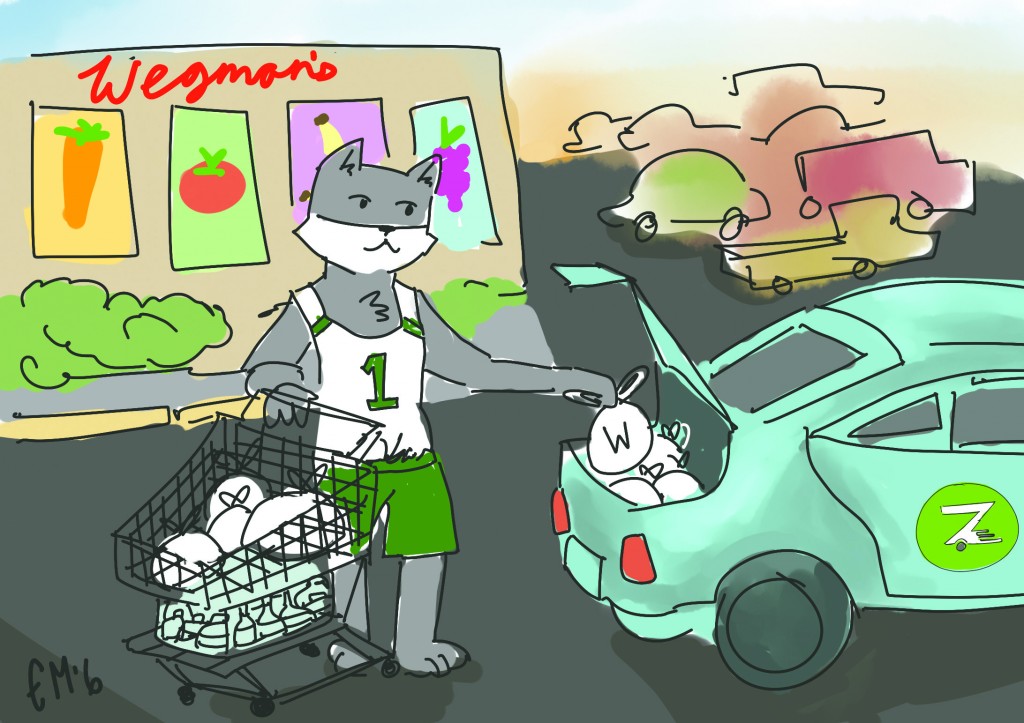After a series of negotiations, car share has returned to Binghamton University. Zipcar has stepped into shoes previously filled by Hertz 24/7, which shuttered its university service this past summer. With three cars in Lot D, located behind Fine Arts, Zipcar presents itself as an affordable transportation option for students who need to get around and lack an option to do so. The Editorial Board firmly believes that the University needs to embrace and properly advertise the service and let it become a huge asset to our campus.
If you’ve ever spent a night with your date on the OCCT bus or carried 10 bags on one arm back from Wegmans, you understand that sometimes there needs to be a more feasible option than public transportation or blue buses. Cars can be rented for as little as an hour at a time — at rates under $10/hour — with a full-day rental coming to less than $70 dollars. Additionally, it can be even cheaper for students who are sharing the ride. Students need this type of service to make their lives easier and travel more efficient.
Binghamton University is a land-locked campus. Vestal Parkway, at the moment, is completely unwalkable and many of the closest supermarkets and stores are miles away. While OCCT has done a good job at building a schedule to ferry students to these locations, it can be difficult to return to campus with a large haul. It is also nearly impossible for students to get to places not currently on the bus line. If you’ve ever had a doctor’s appointment off-campus, you know what we’re talking about. Zipcar can help solve this problem.
Students commonly bring their cars to campus to help address this need — allowing them to get around to everything from restaurants to B-Mets games. With this in mind, Zipcar can also serve to free up some parking spots on campus. Some students who bring their cars to campus may find that a Zipcar would be more convenient, especially sophomores who find that they have no serious commuting needs for a car, but who choose to bring their vehicle to campus anyway. Zipcar could help with two problems in one — overcrowding and transportation.
The service will also help give additional mobility to a population that we often overlook: international students. Though they may have licenses, most international students do not own a car in the United States. Zipcar will give them the freedom to explore the area with an independence that they may not have had — without being beholden to bus schedules.
Stanford University, a college similar in population size, has nearly 60 Zipcars across its campus, allowing students to rent cars to escape the campus bubble. If the University promotes the benefits of car-sharing more this time around, Zipcar on our campus can grow and will have the potential to transform the dynamics of student transportation in the area.



